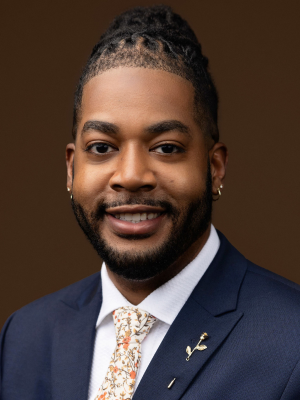New workforce initiative program aims to better prepare public health workforce
A full 80% of the public health workforce doesn’t have a public health degree. That reality, seen not just in Louisiana but across the U.S., leaves a critical gap in knowledge and training for the professionals charged with protecting the nation’s health.
The Celia Scott Weatherhead School of Public Health and Tropical Medicine is working to close that gap with a Certificate in Public Health. The program provides students and working professionals with foundational knowledge of public health and creates a pathway for further study.
“A lot of people come into the field out of passion, or out of job availability, and don’t really have that foundational knowledge of how public health works,” said Dr. Rodney T. Anthony, the school’s new director of public health workforce development. “Our goal is to really connect with those individuals in various organizations and enhance their skillset to make sure that our workforce is ready for public health needs.”
Anthony is spearheading the initiative. “If they don’t know my name, they already know the program,” he said. “And there’s a lot of interest around this.”
The certificate is designed for professionals from a wide variety of backgrounds—physicians, nurses, administrators, educators, researchers, and policy experts—as well as students interested in exploring the field. Coursework can be applied toward a Master of Public Health (MPH) degree, giving participants both flexibility and opportunity for growth.
Born in Woodville, Miss., Anthony brings an impressive background to his role, with experience bridging professional practice and education. After beginning his career in his home state, he served as cancer policy and prevention manager for the Louisiana Department of Health and later as manager for community education at Woman’s Hospital in Baton Rouge. His familiarity with Louisiana’s public health community is a definite asset in shaping the certificate program.
“Beyond reconnecting with people, the important thing has been making sure this program meets people’s needs,” Anthony said.
The program blends academic coursework with hands-on training, mentorship, peer learning, and community engagement. Participants will earn a 15-credit hour graduate certificate while taking part in monthly check-ins, skills labs, and an annual symposium featuring public health leaders. Courses can be completed on a full- or part-time basis, online or in person.
Anthony is quick to credit his new colleagues for their support, as well as the leadership of Dean Thomas A. LaVeist. Together, they envision Tulane as an even stronger leader in the Gulf South, addressing public health needs in tangible ways. The certificate joins other workforce initiatives at the school, including the Region 6 Public Health Training Center and the Tulane Center for Applied Environmental Public Health.
“We’re starting smaller with the health departments in Louisiana,” Anthony said. “But ultimately, it will be their decision if they want to participate in the program or not.”
By combining rigorous academics with real-world application, the Certificate in Public Health creates a transformative pathway for professionals to advance their careers while building a more resilient and better-prepared workforce.


